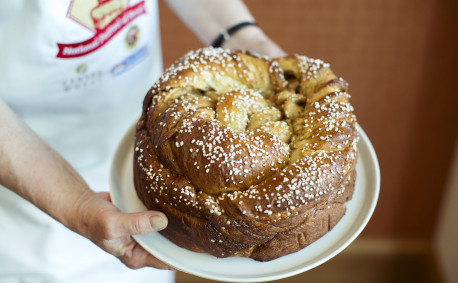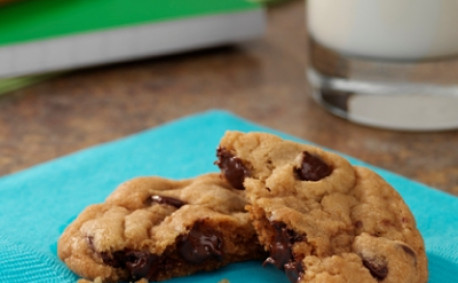The Home Baking Association Wants to Help You Bake
There’s something about baking that just says “love.” Maybe it’s the buttery aromas wafting from the kitchen or the chewy, flaky, spongy goodies that emerge steaming from the oven.
Sharon Davis would argue it’s the act of baking itself that makes it so worthwhile.
“It’s rewarding in every way — mentally, physically, financially,” she said. “Mentally, it’s a good part of de-stressing. It keeps you focused on producing something that’s meaningful and delicious. Physically, it’s clean label. You can control the portion sizes, use whole grains and vegetables, and burn calories while you do it. Financially, it can save families thousands of dollars on pizza dough alone!”
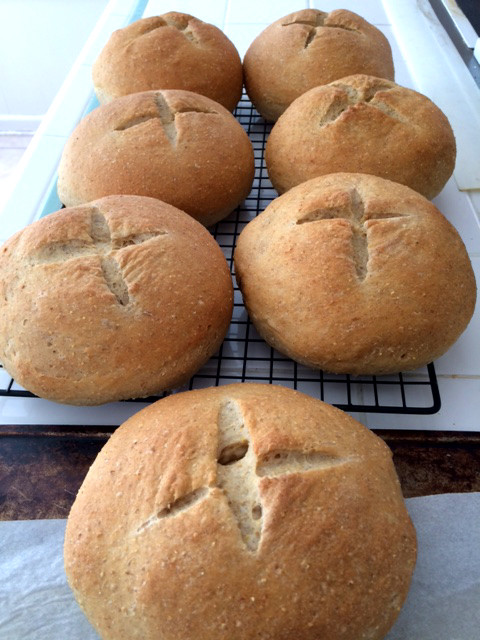 Sharon is the program development director for the Home Baking Association, or HBA, and her passion is helping other people learn to bake. Headquartered in Kansas, the HBA’s mission is to promote home baking and provide resources to educators and anyone around the country who’s interested in baking.
Sharon is the program development director for the Home Baking Association, or HBA, and her passion is helping other people learn to bake. Headquartered in Kansas, the HBA’s mission is to promote home baking and provide resources to educators and anyone around the country who’s interested in baking.
“Our whole mission is to work with educators — in classroom or community settings — and help them teach food skills to others,” she said. “Where the rubber meets the road is when a teacher can go back and teach 150 kids and they can save their families money.”
Although it focuses on educators, the HBA has plenty of resources for families, too.
“After all, we’re the HomeBaking Association. We have a rich, rich library of resources for home bakers and parents teaching their kids to bake.”
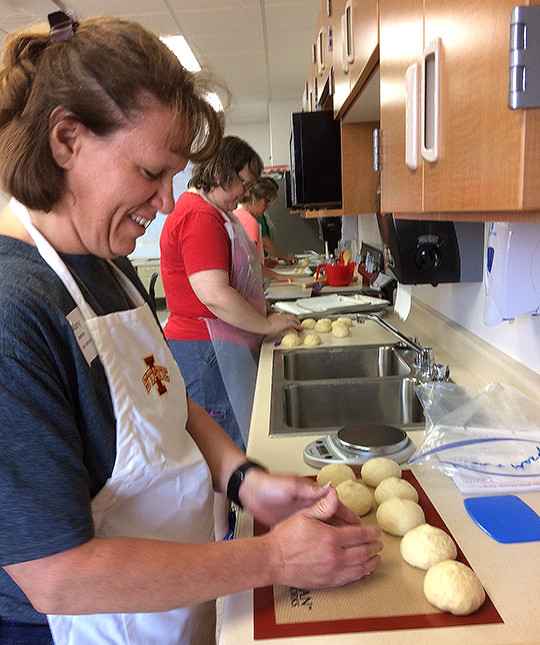 Baking is a fantastic STEAM (science, technology, engineering, arts and math) activity. From the math of measuring ingredients to the science of temperature control and the art of flavor, so many different components come together in baking.
Baking is a fantastic STEAM (science, technology, engineering, arts and math) activity. From the math of measuring ingredients to the science of temperature control and the art of flavor, so many different components come together in baking.
“Baking is incredibly complicated. It can be daunting to a beginning baker because it’s so precise,” Sharon said.
The HBA breaks baking down into easy-to-understand skills with helpful videos, easy recipes, informational sheets and simple projects.
Another important aspect of baking is safe dough handling — bad news for fans of eating raw dough. No matter how good it tastes, it isn’t safe to eat. Raw dough can harbor E. coli and salmonella.
“Who doesn’t want to lick brownie batter out of the bowl? But it’s not a good practice and you shouldn’t do it. Flour is a raw commodity. It’s not treated until it’s baked,” Sharon said. “When you handle dough, treat it like you’ve just handled raw meat. Wash your hands and the counter.”
Sharon loves seeing baking become a new skill people love. She and her co-worker Charlene Patton conduct baking education workshops like the ones pictured. During these workshops, they teach teens and adult community leaders how to make Pilgrim Bread or Soft Pretzels from scratch. The participants work with yeast, measure ingredients and shape dough to create their final product. After attending one of these 4-H or STEAM workshops, participants in turn will go back home and teach thousands more about baking.
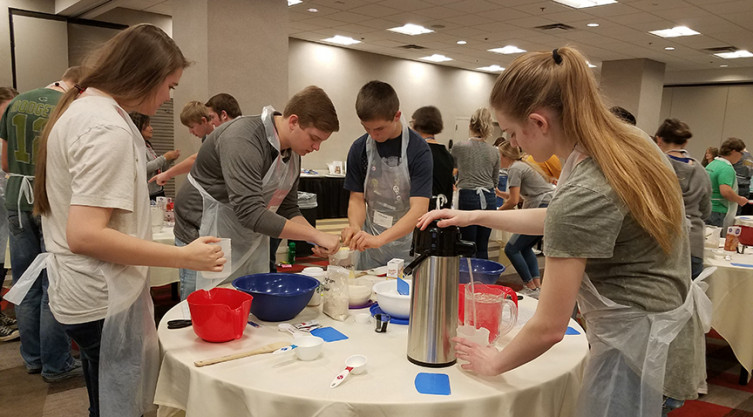 “Those kids were totally engaged. Their responses were delightful. Best of all, they will keep baking bread because they did it and learned the basics,” she said.
“Those kids were totally engaged. Their responses were delightful. Best of all, they will keep baking bread because they did it and learned the basics,” she said.
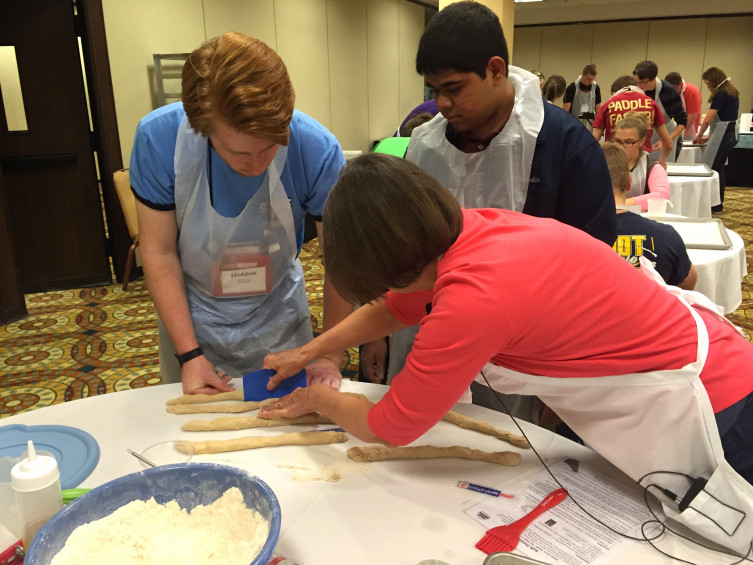 Helping current bakers and creating future bakers is what HBA is all about. For Sharon, that mission takes on a personal note.
Helping current bakers and creating future bakers is what HBA is all about. For Sharon, that mission takes on a personal note.
“For me, it’s about home and neighbors and community,” Sharon said.
As a nonprofit, the HBA is supported thanks to corporate and community partners. To learn more and check out their videos and other resources, visit their website.

